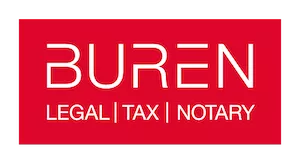Investors that are involved in a Dutch limited partnership or in a foreign limited partnership having Dutch investors or Dutch assets should review the consequences of the entity classification rules and take adequate action before 1 January 2025.
At the end of 2023 tax legislation was adopted by the Upper House of Parliament concerning several amendments in the tax classification (opaque or transparent) rules for domestic and foreign legal entities which will enter into force per 1 January 2025. Recent discussions have focused on changes in the tax classification of limited partnerships under Dutch law (commanditaire vennootschap, or CV) or an equivalent foreign vehicle when comparable to a limited partnership established under Dutch law.
CVs (or foreign limited partnerships) are until the end of 2024 classified as transparent for Dutch corporate income tax (CIT) and dividend withholding tax (DWT) in case the admission or replacement of a limited partner requires the consent of all its partners, known as the 'consent requirement'. As this consent requirement is highly uncommon in an international perspective, the Dutch government announced that the consent requirement will no longer be relevant in classifying the CV or equivalent limited partnership. Following a legislative proposal that has been adopted starting 1 January 2025, such limited partnerships will be treated as transparent for Dutch tax purposes as the default rule. Specific rules to mitigate potential tax exposure allow in some situations for restructuring possibilities in 2024.
Dutch tax law also recognizes the 'contractual fund for joint account' (fonds voor gemene rekening, or FGR), which, under certain conditions, is classified as opaque. Due to additional changes to the Dutch corporate income tax act, limited partnerships that qualify as investment institutions under the Act on Financial Supervision (Wet financieel toezicht) with tradeable participations, may be classified as an FGR. As a result, CVs and equivalent foreign limited partnerships may be subject to Dutch CIT and WHT purposes from 1 January 2025. Testing if a limited partnership operates as an investment institution requires an analysis of its activities, investments and governance. There is a carve out however in case of an investment institution that has a closed-end nature and applies a redemption mechanism allowing a partner to only sell its partnership interest to the limited partnership.
With serious concerns voiced by the investment fund industry and tax practitioners, on Friday 25 October the Dutch government announced in a letter to Parliament that a Dutch or foreign limited partnership which may have to be considered a FGR but wishes to ensure its tax transparency as from 2025 onwards, shall be considered transparent in 2025 in case it has the intention in 2024 to apply a closed-end redemption mechanism. It is uncertain if further changes will be announced.
Investors that are involved in a Dutch limited partnership or in a foreign limited partnership having Dutch investors or Dutch assets should review the consequences of the entity classification rules and take adequate action before 1 January 2025.
The content of this article is intended to provide a general guide to the subject matter. Specialist advice should be sought about your specific circumstances.



